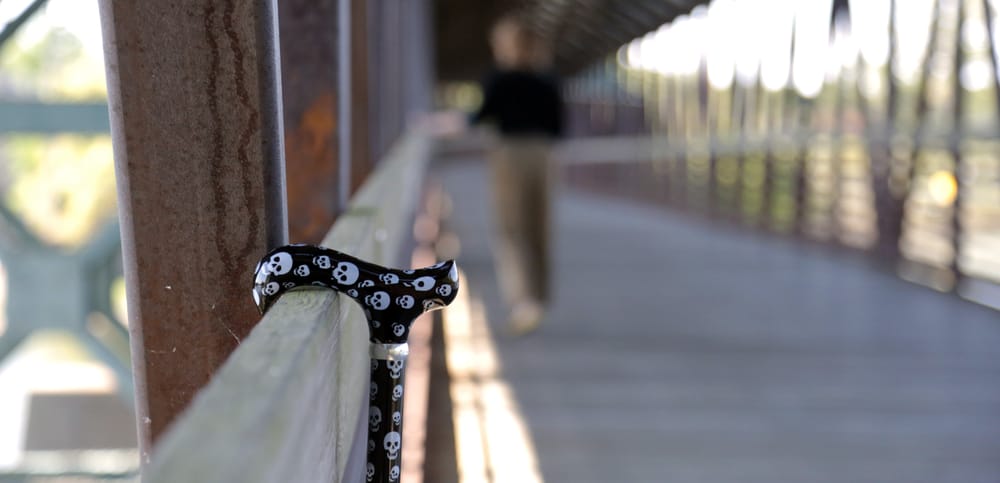There's no such thing as work-life balance for disabled and chronically ill workers. It just doesn't exist.
Our personal lives constantly and persistently govern our ability and capacity to work. There's also no separating the two because everything requires work. Hygiene. Eating. Sleeping. Staying on top of our health. Relationships. Bills. It's all work.
Being chronically ill or disabled feels a bit like juggling multiple full-time jobs. And that's before we even pay the bills.
To help fellow chronic workers self-manage throughout the workday, here's a living collection of tried-and-true techniques from disabled, ill, and neurodivergent professionals.
This living guide will start small, but I plan to add to it every time I hear of a new tip or strategy that works well for someone (attribution included, of course!).
Technique #1: Gut checks
Having PTSD, anxiety, and depression means my brain is often at best, overreacting, or at worst, flat-out bullshitting me.
But my gut never lies. So I rely on it to tell me what triggers are real and where they’re coming from with regular “gut checks.”
I start with a feeling that something is wrong. Could be a random wave of anxiety, serious mood dip, or my brain refusing to focus on a task. On a normal day, my anxiety is a small ache or weight in my stomach, often with slight nausea, which makes for a good baseline.
I’ll find a quiet and comfortable place to settle into and just breathe for a minute or two, so I can focus and detect small changes in my body. Once I’ve sat with that feeling for a while, I’m ready to ask my gut questions.
I start broad, usually with “Is it…Money? Work? Family? Marriage? Friends? Upcoming event/project?” If one of those hits the mark, I’ll feel a small tightening of my gut or flare of pain and I’m ready to go deeper.
Next, I try specific keywords like “therapy session,” “client call with BLANK,” “my sister’s wedding,” or more abstract ones like “not meeting my income goal.”
These gut checks never come with a solution, but having an answer can be a relief in itself. Sometimes, I’m anxious about upcoming events I can’t avoid and just need to relax. Other times, it’s a warning sign of an episode or a bigger worry I need to address.
Regardless of the reason, the key is to listen, learn, and respect how my body reacts to stressors. And trust my gut.
Gut checks can be a great self-management tool because they set the baseline for your day. But they're also helpful for work. That self-awareness I build by checking in allows me to plan my day more carefully and work around health concerns or stressors that affect my productivity.
I also like to take this strategy a step further with the next technique.
Technique #2: Intuitive scheduling
Some days, I wake up hyper and all over the place, tired, or nauseous. This usually happens when I have a deadline looming, a busy day ahead, or I'm recovering from a stressful or active day.
Those are the days I know I need to handle things a bit differently. Instead of working to a specific schedule, or sitting myself down and asking my gut what’s wrong, I start with this question: “Are you ready to work?”
If the answer is no, I tell myself it’s okay and make some tea, or watch an episode of a fave TV show before checking in again. Sometimes, just acknowledging it is enough and I’ll end up starting work anyway. Other times, I need to initiate my emergency protocol: short, alternate bursts of work and rest until I’m done for the day.
I’ll also do this in the middle of work by asking “Can I keep going?” to ensure I get a break when I need one. If it’s late and I’m still not finished, I slow down deliberately, telling myself I have all the time in the world.
It’s not about putting off what needs to be done, it’s about honoring my body’s need to work at its own pace.
Some of this may seem obvious (Why ask yourself questions if you’re clearly anxious?) or irresponsible (How can you just not work when you’re on a deadline?).
And yes, there are times I need to push through to meet deadlines, work on projects, or get stuff done around the house. But as anyone with a disability or chronic illness knows, we can only ignore our health for so long before it comes back to bite us.
That's why I have strategies like these: to help me get the most I can done in the time I have.






